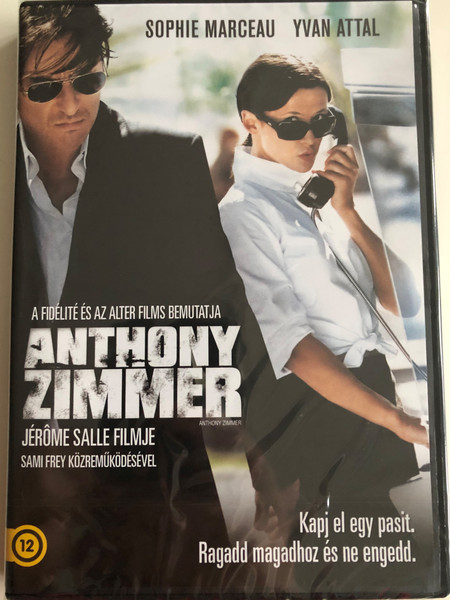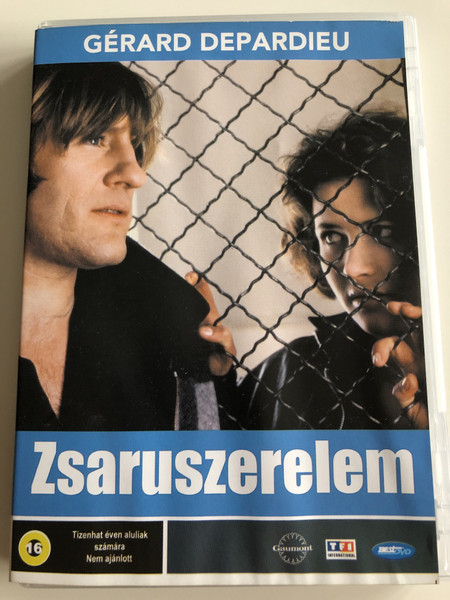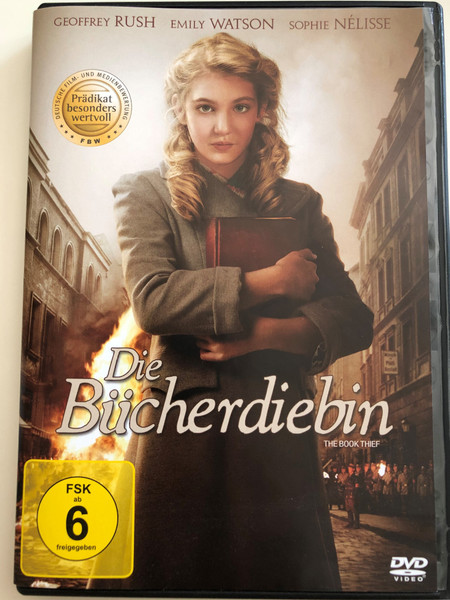Description
Sophie Scholl - Die letzten Tage DVD 2005 / Sophie Scholl - Aki szembeszállt Hitlerrel / German historical drama film directed by Marc Rothemund and written by Fred Breinersdorfer
UPC 5998133170330
MADE IN EUROPE
REGION 2 DVD
Has GERMAN and HUNGARIAN SOUND OPTIONS
Hungarian Subtitles
Playtime 116 minutes
Sophie Scholl – The Final Days (German: Sophie Scholl – Die letzten Tage) is a 2005 German historical drama film directed by Marc Rothemund and written by Fred Breinersdorfer. It is about the last days in the life of Sophie Scholl, a 21-year-old member of the anti-Nazi non-violent student resistance group the White Rose, part of the German Resistance movement. She was found guilty of high treason by the People’s Court and executed the same day, 22 February 1943.
The film was presented at the 65th Berlin International Film Festival in February 2005 and won Silver Bear awards for Best Director and Best Actress (Julia Jentsch). It was nominated for an Academy Award for Best Foreign Language Film.
Sophie Scholl – Die letzten Tage ist ein deutscher Film des Regisseurs Marc Rothemund aus dem Jahr 2005 nach einem Drehbuch von Fred Breinersdorfer. Er schildert die letzten Tage im Leben von Sophie Scholl. Der Film wurde auf der Berlinale 2005 mit dem Silbernen Bären für die beste Regie und für die beste Hauptdarstellerin (Julia Jentsch) ausgezeichnet. Die Auslandsvertretung der deutschen Filmbranche, German Films, wählte das Drama im September 2005 als offiziellen Kandidaten für eine Oscar-Nominierung in der Kategorie Bester fremdsprachiger Film.
Die Oscar-Nominierung wurde am 31. Januar 2006 von der Academy of Motion Picture Arts and Sciences bekanntgegeben, bei der Verleihung ging der Film jedoch leer aus.
Cast
| Actor | Role |
|---|---|
| Julia Jentsch | Sophia Magdalena 'Sophie' Scholl |
| Fabian Hinrichs | Hans Fritz Scholl |
| Alexander Held | Robert Mohr |
| Johanna Gastdorf | Else Gebel |
| André Hennicke | Dr. Roland Freisler |
| Florian Stetter | Christoph Hermann Probst |
| Maximilian Brückner | Willi Graf |
| Johannes Suhm | Alexander Schmorell |
| Lilli Jung | Gisela Schertling |
| Petra Kelling | Magdalena Scholl |
| Jörg Hube | Robert Scholl |
| Franz Staber | Werner Scholl |
ENGLISH SUMMARY:
In wartime Munich, Sophie Scholl joins members of the White Rose student organization, including Sophie's brother Hans, who are preparing copies of their sixth leaflet. They have mimeographed more than they can distribute through the mail. Hans proposes distributing the extras at university the next day; despite Willi arguing that the risks are unacceptable, Hans says that he will take full responsibility, and Sophie volunteers to assist.
The next day, Sophie carries a small suitcase as she and Hans walk to the main building of Munich University. In the building, where classes are in session, they set about putting down stacks of leaflets near the doors of lecture rooms. With only minutes left until the period ends, Sophie runs to the top floor, where she sets a stack of leaflets on the balustrade, then impulsively pushes them over the edge. As Hans and Sophie try to leave, a janitor who saw Sophie scatter the leaflets shouts at them to stop, and detains them until police arrive and arrest them.
The siblings are taken to the Munich Stadelheim Prison, where Sophie is interrogated by Gestapo investigator Robert Mohr. Claiming initially to be apolitical, she presents an elaborate alibi: she and her brother had nothing to do with the fliers; she noticed them in the hall and pushed a stack off the railing because it is in her nature to play pranks; and she had an empty suitcase because she was going to visit her parents in Ulm and planned to bring back some clothes. Her deception seems to be working; she is dismissed. As her release form is about to be approved, though, the order comes to not let her go. She is placed in a prison cell with fellow prisoner Else Gebel.
The investigation has found incontrovertible evidence that Sophie and Hans were indeed responsible for the distribution of anti-Nazi leaflets. Sophie concedes her involvement (as has Hans) but, determined to protect the others, steadfastly maintains that the production and distribution of thousands of copies of leaflets in cities throughout the region were entirely the work of Hans and herself. Mohr admonishes her to support the laws that preserve order in a society that has funded her education; Scholl counters that before 1933 the laws preserved the right of free speech, and describes atrocities committed by the Nazis, both ones she has seen and ones she has heard of (including reports of concentration camps from soldiers returning from the Eastern Front). When she says that she is willing to accept all blame, and refuses to name accomplices, Mohr ends the interrogation.
Sophie, her brother and a married friend with three young children, Christoph Probst, are charged with treason, troop demoralization and abetting the enemy. In the subsequent show trial, Probst is the first to be examined by President of the People's Court Roland Freisler, whose prosecutorial zeal makes the nominal prosecutor superfluous. Freisler contemptuously dismisses Probst's appeals to spare his life so that his children can have a father.
Hans maintains his composure in the face of Freisler's increasingly impatient questioning. Declining to answer only what he is asked, he argues that the defeat of the Nazi state has been made inevitable by the alliance of the Soviet Union, Britain and the United States; all Hitler can do is prolong the war. In her own examination, Sophie declares that many people agree with what she and her group have said and written, but they dare not express such thoughts. Freisler pronounces the three defendants guilty and calls on each to make a brief final statement. Sophie tells the court that “where we stand today, you [Freisler] will stand soon.” All are sentenced to death.
Sophie, who had been told that everyone had 99 days after conviction before they were executed, learns that she is to be executed that day. After a visit by her parents, who express their approval of what she has done, Mohr comes to the prison and sadly watches Sophie taken away. Soon after, she is led into a cell where Christoph Probst and Hans await. They quietly share a cigarette, then embrace. Probst remarks that what they did was not in vain. As Sophie is led into a courtyard, she says, "The sun is still shining". She is brought to the execution chamber and placed in a guillotine. The blade falls and the picture goes black. Footsteps are heard, then Hans's voice exclaiming "Es lebe die Freiheit!" ("Long live Freedom!") before the blade falls again. Probst is brought in next, breathing heavily, before the blade falls once more.
In the closing shot, thousands of leaflets fall from the sky over Munich. A title explains that copies of the White Rose manifesto were smuggled to Scandinavia and then to England, where the Allies printed millions of copies of the "Manifesto of the Students of Munich" that were subsequently dropped on German cities. The first frames of the credits list the names of the seven members of the White Rose group who were executed, more than a dozen who were imprisoned, and supporters and sympathizers who received draconian punishments.
GERMAN SUMMARY:
Die Mitglieder der Widerstandsgruppe Weiße Rose bearbeiten in einem Münchener Keller die Kopien von ihrem sechsten Flugblatt. Sie haben davon mehr vervielfältigt, als sie über die Post verteilen können. Hans, Sophies Bruder, schlägt deshalb vor, die Extrablätter am nächsten Tag in der Universität zu verteilen. Da Willi Graf dies für zu gefährlich hält, kündigt Hans an, dass er die volle Verantwortung übernehmen wird, und auch Sophie erklärt ihre Unterstützung bei der Ausführung mit der Begründung, dass eine Frau wohl weniger Aufmerksamkeit des Sicherheitspersonals auf sich ziehen wird.
Am nächsten Tag gehen Sophie und Hans während der Vorlesungen in das Hauptgebäude der Universität und legen die Flugblätter in der Nähe der jeweiligen Hörsaaltüren aus. Im dritten Stockwerk legen sie die restlichen Flugblätter auf die Balustrade. Sophie schiebt sie schließlich über den Rand, sodass die Flugblätter in das Atrium fallen. In diesem Moment öffnen sich die Türen der Hörsäle und die Studierenden strömen heraus. Sophie und Hans wähnen sich in der Menschenmasse sicher, wurden jedoch während ihrer Aktion vom Pedell Jakob Schmid beobachtet. Dieser hält sie auf, bis die Polizei eintrifft und die Geschwister festnimmt.
Sie werden ins Münchener Wittelsbacher Palais (Gestapo-Gefängnis) gebracht, wo Sophie durch den Gestapo-Ermittler Robert Mohr verhört wird. Anfangs behauptet sie, ein unpolitischer Mensch zu sein, dass sie und ihr Bruder nichts mit den Flugblättern zu tun hätten, welche sie lediglich in der Halle bemerkt und über die Balustrade geworfen habe, weil es in ihrer Natur liege, Streiche zu spielen. Den leeren Koffer erklärt sie bei der Befragung mit dem Besuch bei ihren Eltern in Ulm, von wo sie saubere Wäsche mitnehmen wollte. Ihre Darstellungen scheinen einleuchtend, weshalb sie wieder entlassen werden soll.
Kurz vor der Genehmigung ihrer Entlassungspapiere trifft jedoch die Anweisung ein, sie nicht gehen zu lassen. Untersuchungen hatten inzwischen ergeben, dass Sophie und Hans in der Tat für den Vertrieb dieses und anderer Flugblätter verantwortlich sind. Sophie wie auch Hans gestehen. Um die anderen Mitglieder der Weißen Rose zu schützen, behaupten sie, die Produktion und die Verteilung der tausenden Flugblätter sei allein ihr Werk gewesen.
Nach weiteren, zermürbenden Verhören sagt Sophie schließlich, dass sie bereit ist, die gesamte Schuld auf sich zu nehmen, und weigert sich weiterhin, die Namen ihrer Komplizen zu nennen. Daraufhin beendet Mohr das Verhör. Sophie, ihr Bruder Hans und Christoph Probst werden des Hochverrats, der Wehrkraftzersetzung und der landesverräterischen Feindbegünstigung angeklagt. Im Schauprozess vor dem Volksgerichtshof muss sich Christoph Probst als erster vor dem Vorsitzenden Roland Freisler verantworten. Die Bitten Probsts, ihn aufgrund seiner drei Kinder zu verschonen, werden von Freisler verächtlich abgewiesen.
Hans wird während Freislers zunehmend ungeduldiger Befragung von diesem angeschrien und beschimpft, aber Hans bewahrt Haltung. Hans sagt, dass die Niederlage des nationalsozialistischen Deutschlands aufgrund der Allianz zwischen Russland, Großbritannien und den Vereinigten Staaten unvermeidlich sei. Alles, was Hitler noch tue, sei den Krieg zu verlängern. Er, Sophie und Christoph Probst stünden nur vor Gericht, weil Hitler Angst vor ihrer Meinung habe. Sophie sagt aus, dass viele Leute mit dem, was die Weiße Rose gesagt und geschrieben habe, übereinstimmen, aber sie nicht den Mut hätten, ihre Gedanken zu äußern. Freisler verkündet die Urteile. Alle drei Angeklagten werden schuldig gesprochen und zum Tode verurteilt. In ihrer Abschlusserklärung sagt Sophie zu Freisler: „Bald werden Sie hier stehen, wo wir jetzt stehen.“
Obwohl Sophie offiziell gesagt wurde, dass eine Exekution nicht innerhalb von 99 Tagen nach der Urteilsverkündung stattfindet, erfährt sie, dass sie noch am selben Tag exekutiert werden soll. Sie hat Mühe, ihre Haltung zu bewahren, und wird in einen Raum gebracht, in dem sie ihr Testament schreiben kann. Schließlich erfährt sie, dass sie Besuch von ihren Eltern hat, die hinter ihr stehen. Sophie verspricht ihrer Mutter, dass sie sich im Himmel wiedersehen werden, als der Gefängnispfarrer kommt und sie den Segen Gottes erhält. Anschließend wird sie nochmals in eine Zelle geführt, in der auch Hans und Christoph Probst auf die Vollstreckung ihres Urteils warten. Sie dürfen eine letzte Zigarette rauchen und umarmen sich. Schließlich wird Sophie von den Henkern zur Guillotine geführt und enthauptet. Vor dem Abspann wird der Bildschirm schwarz, und man hört, wie auch Hans Scholl und Christoph Probst hingerichtet werden.
HUNGARIAN SUMMARY:
"A Fehér Rózsa" volt a szimbóluma annak az ellenállási szervezetnek, amelyben néhány müncheni egyetemista a Náci rezsim ellen harcolt. Az 1943-ban játszódó film az életük kockáztatásával is a nemzetiszocializmus ellen küzdő testvérpár Sophie és Hans Scholl a Fehér Rózsa vezetőinek, utolsó napjait mutatja be. Egyik akciójuk során az egyetem gondnokának feljelentésére a Gestapo foglyaivá válnak. Bebörtönzésük és a napokig tartó kihallgatás során, Sophienak sikerül átvernie a vallató tisztet, Robert Mohrt, ám Hans megtörik a tortúra alatt és mindent bevall. Sophienak be kell ismernie elveit, de ugyanakkor védenie is kell a csoport többi tagját. Február 22-én a Scholl testvéreket és első számú segítőjüket Cristoph Probstot vád alá helyezik hazaárulás terhével és halálra ítélik. Az ítélet-végrehajtásra még aznap sor kerül. A fiatal Sophie Scholl vezette müncheni egyetemisták elszánt megmozdulása az igazságszeretetnek és a bátorságnak mindig követésre méltó példája marad.
Egyéb címek: Sophie Scholl: The Final Days
Nemzet: német
Stílus: háborús, életrajzi, dokudráma
Hossz: 117 perc
Amerikai bemutató: 2006. február 24.
Magyar mozibemutató: 2006. február 16.
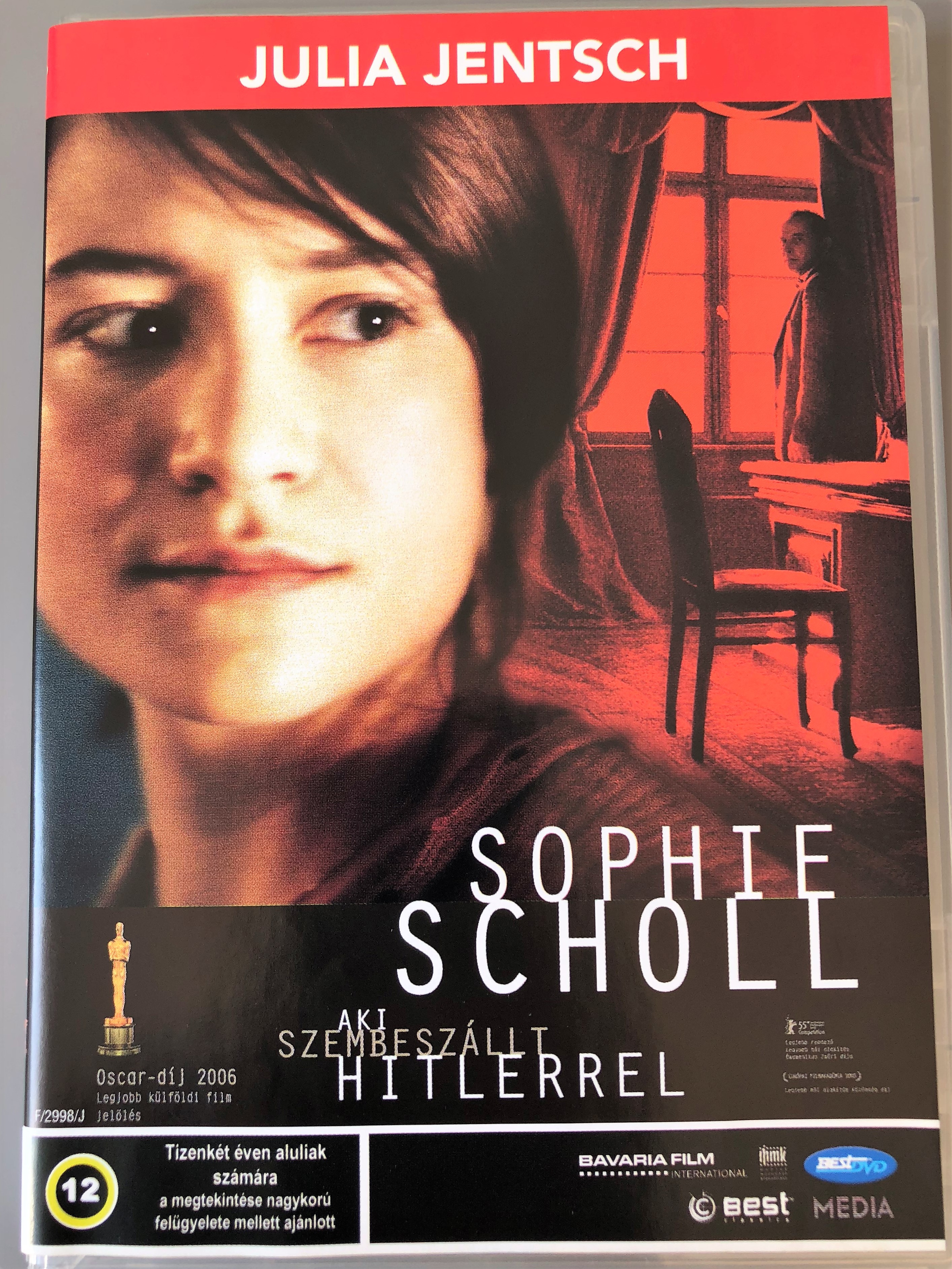
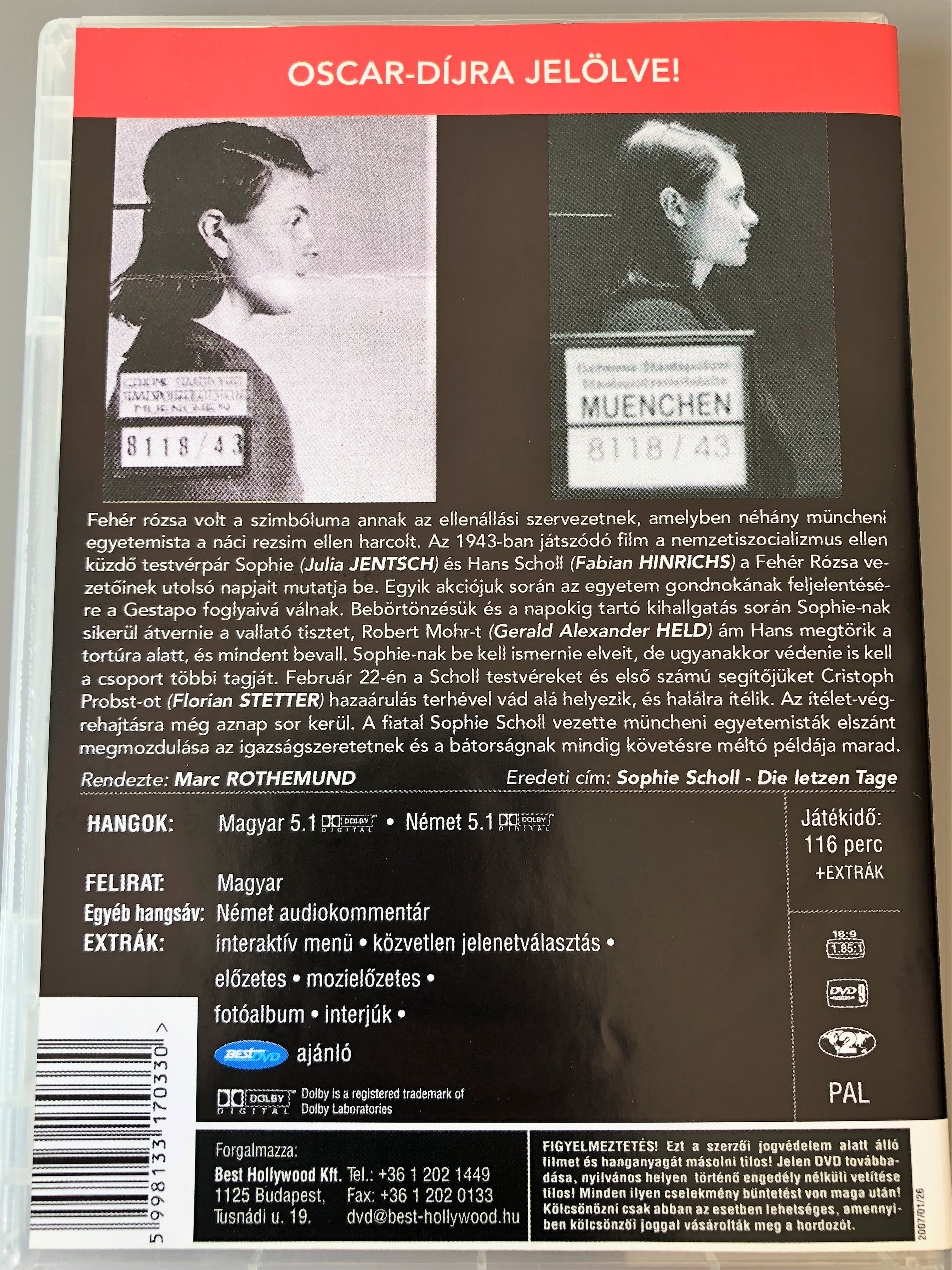
| Directed by | Marc Rothemund |
|---|---|
| Produced by |
|
| Written by | Fred Breinersdorfer |
| Starring | |
| Music by | |
| Cinematography | Martin Langer |
| Edited by | Hans Funck |
| Distributed by |
|
|
Release date
|
|
|
Running time
|
117 minutes |
| Country | Germany |
| Language | German |





